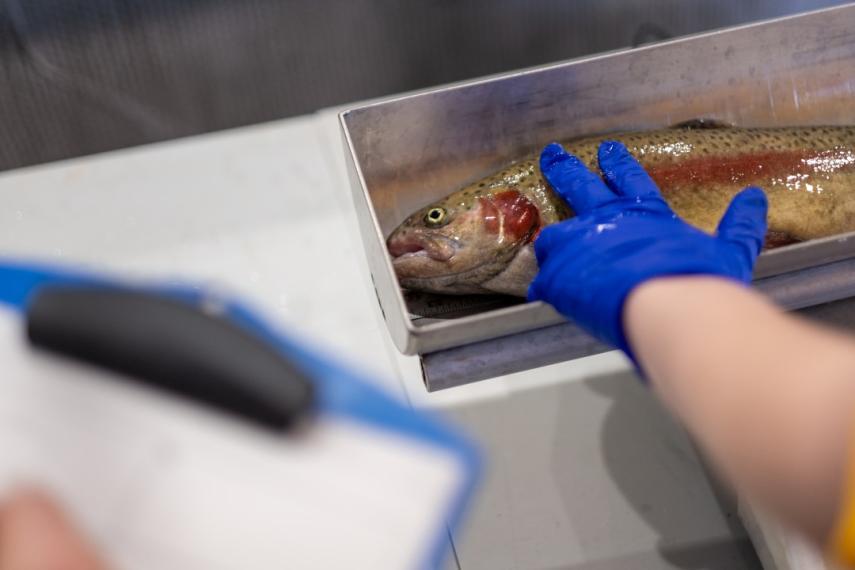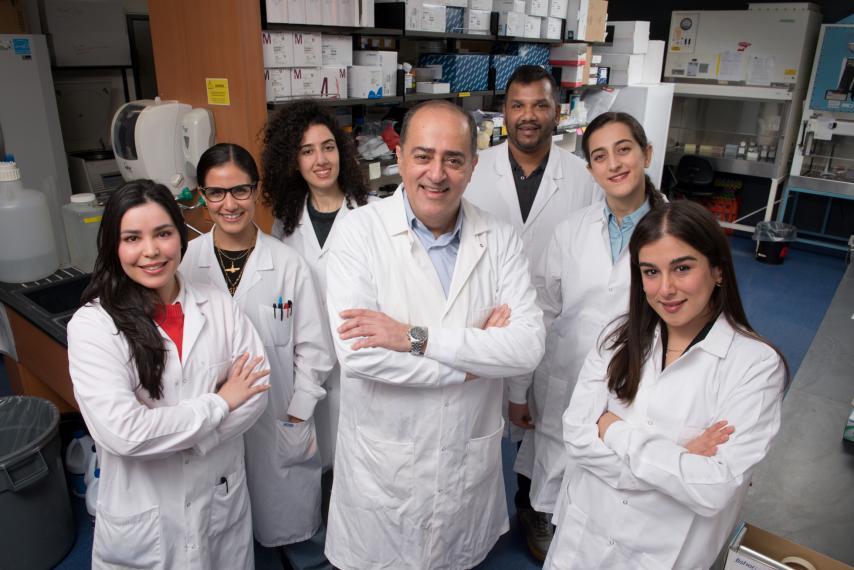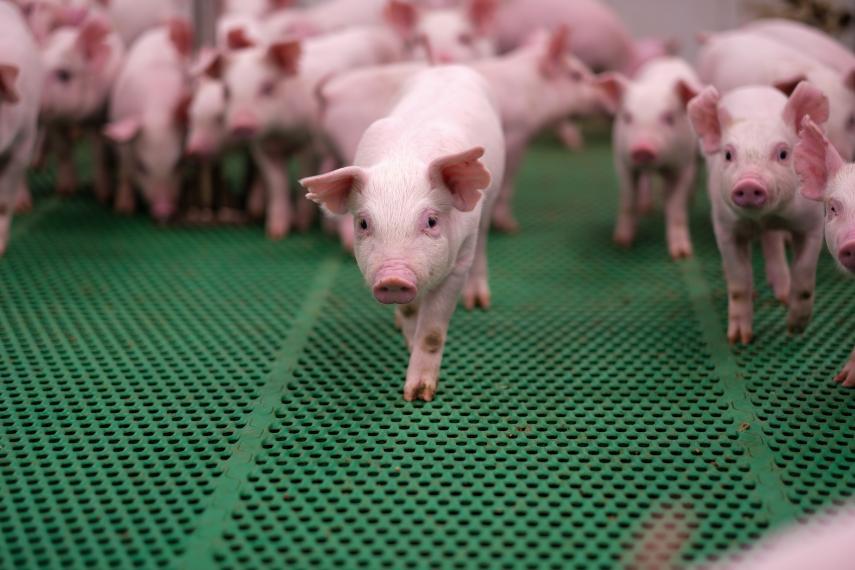U of G and Quebec Researchers Join Forces to Tackle Fusarium Head Blight
Ontario wheat growers are constantly on guard against fusarium head blight (FHB). In Eastern Canada, FHB is the wheat disease that affects profitability the most.
Ontario wheat growers are constantly on guard against fusarium head blight (FHB). In Eastern Canada, FHB is the wheat disease that affects profitability the most.

The aquaculture industry relies on wild-caught fish as the main source of protein and fat in fish feeds. In a trial at the Ontario Aquaculture Research Centre, a U of G research team led by Dr. David Huyben, researcher in the Department of Animal Biosciences, investigated insects as substitutes for wild-caught fish used in fish feed, fishmeal and fish oil.
With support from the Ontario Agri-Food Innovation Alliance, Dr. Rafael Santos, a chemical engineer and researcher in the U of G College of Engineering, has been studying wollastonite’s ability to improve soil and tackle greenhouse gas emissions. He’s digging into questions about how much to apply, which crops benefit the most and how much carbon the calcium-silicate mineral can sequester.
The University of Guelph will lead the construction and revitalization of critical agri-food research capacity, powered by a $41-million investment in Agricultural Research and Innovation Ontario (ARIO) research infrastructure from the Government of Ontario.
This funding commitment reinforces U of G’s role as a cornerstone of Ontario’s agri-food innovation ecosystem and ensures that high-impact research can continue to deliver real-world solutions for Ontario’s producers, agribusinesses and researchers.
Dr. Milad Eskandari is using artificial intelligence (AI) and hyperspectral imaging to transform soybean breeding, enabling faster, smarter and more precise crop selection. The study, funded in part by the Ontario Agri-Food Innovation Alliance, demonstrated that hyperspectral vegetation indices combined with hybrid AI models – including deep neural networks – can accurately predict soybean yield and biomass.
A University of Guelph researcher is using artificial intelligence (AI) and robotics to improve how crop diseases are detected and managed, making the process faster, more accurate and more efficient for farmers.
Dr. Gurjit Randhawa, a professor in the School of Computer Science within the College of Computational, Mathematical, and Physical Sciences, collaborated with Dr. Aitazaz Faroque of the University of Prince Edward Island to apply machine learning tools to detect crop diseases in potato fields on Canada’s Atlantic coast.

A new study led by University of Guelph researchers and funded in part by the Ontario Agri-Food Innovation Alliance is the first large-scale project to assess antibiotic usage trends and their impact on honey bee health in Canada.
The withdrawal of antibiotics, following recent regulation changes, was one of the top predictors of honey bee overwintering mortality — a result that surprised lead author Dr. Brendan Daisley.
Climate change is reshaping farmland - influencing crop yields, water availability, overall productivity and land values. Understanding these changes is crucial for farmers, policymakers, and economists alike. Two recent graduates of the Ontario Agricultural College (OAC) have published their research in the Journal of Land Economics, exploring the impact that climate change might have on farmland values – the results are surprising.

At the University of Guelph, the fight against avian flu is campus wide. It’s underway in virology and animal health labs, in offices and lecture halls, across training platforms and AI solutions and in test tubes filled with innovative vaccines.
Investment into research, laboratory testing and infrastructure from the Ontario Agri-Food Innovation Alliance helps put U of G researchers everywhere they can be: in labs and on farms, developing new vaccines, analyzing bird samples and using AI to forecast outbreaks.

Dr. Jim Squires and his research team are developing precision approaches to predict and control boar taint, a significant issue in the swine industry. This Alliance-supported research is expected to offer Ontario producers new ways to prevent boar taint without castration, leading to double-digit gains in growth and feed conversion.
Read the story: Research uncovers innovative approaches to prevent boar taint | University of Guelph